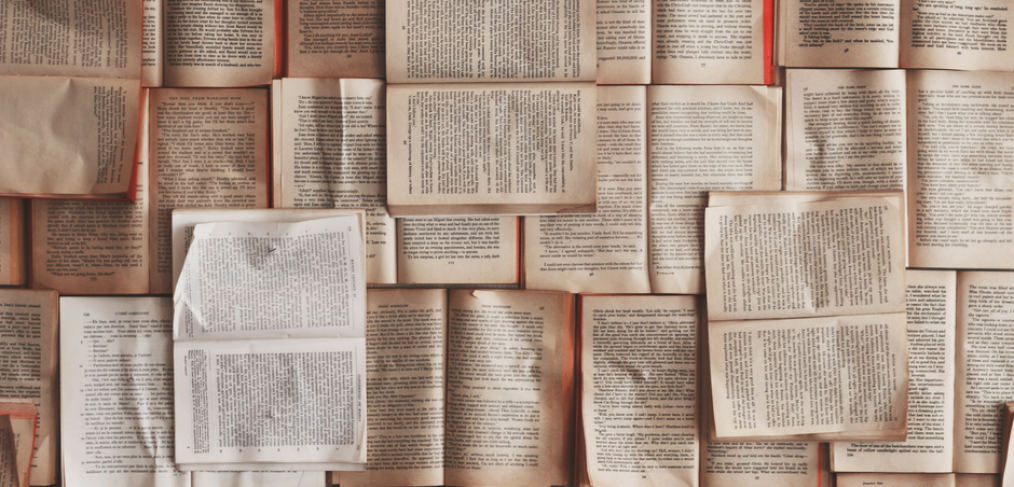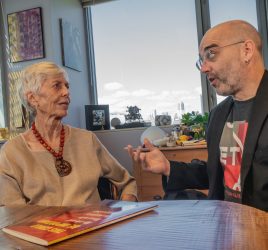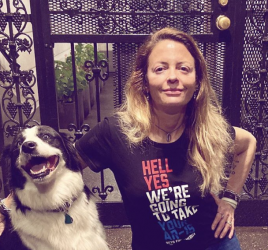
The Books that Influence My Writing Life
“We changed again, and yet again, and it was now too late and too far to go back, and I went on. And the mists had all solemnly risen now, and the world lay spread before me.”—Pip, Great Expectations
I’ve written a great deal about the moments that changed my life as a writer. The night I met Jim Carroll and Hunter Thompson. The years I spent traveling to see Mark Smith and the Uptown Poetry Slam. My inglorious email to Michael Lewis.
And I’ve spilled far too many words on the pain and anguish of writing. Or not writing. Or writing that never quite lives on the page in the way that it lives in my head. While I’ve long ago resigned myself to my middling talent, I’ve never lost my love for the words and the page.1
However, I’ve never written about the books that shaped me as a writer. The ones that I carry with me—reading and re-reading—because of how the influenced me.2
While this conversation happens organically with friends and colleagues, on the page it’s important to take a step back before committing to this topic and discuss what it means to influence.3
Personal Influence
The first influence that I don’t mean is personal influence. As a teenager, I had a bookcase in my room. Three shelves of it were filled with the work of Isaac Asimov: Foundation, Foundation and Empire, and Second Foundation, I, Robot, and the editorials from Asimov’s Science Fiction. One of America’s most prolific and successful writers, Asimov—a scientist—wrote hard science fiction, weaving deeply human stories around near-future science. He eschewed warp drives and phasers for a grounded reality. As an atheist and someone who would grow into a career where I was surrounded with science, Asimov’s writing made me feel less alone in the world.
Somebody else—somebody smarter than me—articulated all of the ideas and thoughts I was struggling to understand!
When I read his work, I knew that in an infinite universe I wasn’t alone. To this day, I re-read his short stories and novels; his writing is like an old blanket for me. He comforts me.
But his work didn’t shape my writing
Cultural Influence
The second kind of influence I don’t mean is cultural. For instance, The Autobiography of Malcolm X, by Alex Haley opened my eyes to a story I knew existed but hadn’t ever found a way to access. I finished Haley’s book in 1991, my freshman year in college.
I remember the year because the book deeply affected me. I spent the next two years collecting Malcolm’s speeches on audio tape and reading every book written about him.4 To this day, I have a Malcolm X section in my bookcase.
Since reading that book, I’ve worked to broaden the spectrum of stories I read, the people I know, and the conversation I have. I’m reticent to point to single moments when life abruptly changes—it’s too easy to retrofit in retrospect—but finishing The Autobiography shook me culturally, spiritually, and individually.
And yet, Haley’s book didn’t shape my writing.5
Lens Influence
The third type of influence that I don’t mean—but one that is related to cultural influence—is influence of lens.
My junior year of college—The year after I finished The Autobiography—I began dating a feminist. She was smart, tough, and we argued about everything. She was a Women’s Studies minor and she encouraged me to take courses. And so I did.6 That began my very slow introduction to understanding the lens of a story.
Fast forward about two decades.
Three years ago, I subscribed to the New York Book Review and The New York Times Sunday edition.7 Since the American bookstore experience has all but died,8 I wanted to make sure I continued to find writers who would normally not show up in my sphere. Whenever I come across a book that I need to read, I use Goodreads to track it. I’ll never catch up with my growing list, but I’ve also eliminated the excuse that I didn’t know where to find books by authors who weren’t like me.
In the last year, the two books9 that have influenced me the most: Harriet Said, by Beryl Bainbridge and Homegoing, by Yaa Gyasi.10
Bainbridge’s writing in Harriet Said was so good that I’ve spent months telling everyone who asks for a recommendation to read it. She didn’t waste word or a waste moment. I woke up early on a Sunday and finished the book before noon.
But it’s not the writing that put her on this list. The story—and I can’t explain the plot without ruining the book—inverts so much of what you think about women protagonists. Harriet Said takes American culture—specifically as it relates to women and girls—and weaves a dark magic in the story.11
On the other hand, Gyasi’s Homegoing tells the story of the American slave trade through the lens of a two sisters in single family on the Gold Coast. Each chapter introduces a new generation, bouncing between the descendants of the sisters.12 I had to stop reading the book in public because I couldn’t get through a chapter without bursting into tears. It’s simply—and without hyperbole—the most powerful book I’ve ever read.
These were the types of books that I’m told are ignored by white men because the lens of the stories don’t reflect us. In both cases, the white men are little more than stock characters who represent cruelty and frailty. And yet I didn’t read either book and think, “Well, I certainly can’t relate to this.” Instead, I’ve learned—slowly and over many years—that my job as a reader was to listen.
So these books—and countless others like it—have influenced how I see the world, but they also haven’t influenced my writing.
Friend Influences
I’m a writer. Everything I’ve accomplished professionally has grown from that initial calling. As I’ve gotten older, I’ve had the chance to read the books my friends have written (some of which have also been published).
In truth, these books haven’t influenced me in the way every other book has. The books my friends have written inspire me. My cup is filled a little higher every time I see one of their books in the wild. There’s nothing I like better than curling up with something my friends created.
Here is a non-exhaustive list of the books you should read:
- Julia Scheeres (Jesus Land, A Thousand Lives)
- Janelle Brown (All We Ever Wanted Was Everything, This Is Where We Live, Watch Me Disappear, Pretty Things)
- Farhad Manjoo (True Enough)
- Trey Dowell (The Protectors)
What I Mean When I Talk about Influence
So—this has been a long way around to get to the answer of what books influenced me as a writer.
While it’s taken all of the words to get us to the point where I can tell you about the books and authors, I’ve never really had to think about this answer. I’ve been a reader since the time before I could read (thanks Mom! and Dad! for reading to me as a child). I’ve absorbed stories my whole life, oftentimes in weirdly obsessive ways.13 I read the entire Hardy Boys and Nancy Drew series as a kid. As an adult, I did a Year of Dawkins, in which I read—in order—everything Richard Dawkins wrote (and then met him before he gave a talk in Indianapolis).
Some books stuck more than other books. Some authors stuck more than other authors. Then enough time passed and enough conversations happened and enough writing happened that the answer evolved into an answer that existed— and always existed.
But—now—I have had time to consider this question more purposefully, I’ve started to understand a bit more why I’ve gravitated towards the writers that I love. I think the answer is something beyond writing.
The answer is simple: class.
I grew up in a small-ish, rural town about forty-five minutes outside of Cincinnati. My family was well enough off—there. We had a nice, two-story home and about three-quarters of an acre of land.14 The trade-off. We lived in the Appalachian county in our town (there were three counties) and we were far from the hustle and bustle of city life
I understood—before I knew—that where I lived determined a great deal about where I would end up. Certainly hard work would create opportunity but the road would be much longer for me because of where I began the journey.15
The books I read that influenced my writing were those that spoke to to that experience. The books—and the writers—that influenced me were the ones who explained me…to me. They put words to the emotions that I felt. They made concrete what I only knew as visceral.
It is why representation matters. And it is why stories matter.
The Scarlet Letter, by Nathaniel Hawthorne.
This was my introduction to the idea that the American ideal—or The American Dream—was not the full story. Certainly you can work hard and you can succeed, but The Scarlet Letter introduced me to the idea that who you were mattered more than what you did, that the light wasn’t always right, and that power structures were less inclined to support justice and more inclined to reinforce the power structures in place.
And, as I’ve reconsidered my Hawthorne love affair, it was also my introduction to class and gender.
The Great Gatsby, by F. Scott Fitzgerald
“So we beat on, boats against the current, borne back ceaselessly into the past.”—Nick Carraway, The Great Gatsby
I don’t know the first time I read Gatsby, I only know that I’ve never stopped reading it since.
Gatsby—a character so far removed from my own socioeconomic upbringing—resonated within me. With him, Fitzgerald painted a portrait of a man so driven to escape the external forces of class that he couldn’t see his own demise coming.
Everyone dies in the pool.
That’s what tell anyone who talked to me about their hopes and aspirations. That is the reality you face if you face down these external forces. Because not matter what you do—unless you are very lucky—those forces will push back against you.
As a postscript to this story: When I was learning—aspiring—to be a writer in 1994, I would sit at Kaldi’s Coffee House, drink Jameson’s Irish Whiskey, and copy the book by hand into a notebook. I wanted to feel what it was like write that story.
The Great Shark Hunt, by Hunter S. Thompson
I read this book when I was a junior in college. I’d settled on the idea of becoming a journalist.16 I tore through the book in one sitting. And when I finished, I convinced myself that my career choice had been a mistake.
I wasn’t really sure what I’d read, to be honest. I felt overwhelmed. Was it fiction? Was it creative non-fiction? Was this journalism?
I didn’t have a clue. And nothing in my schooling—or my life—prepared me to answer those questions. I realized as I put the book down that whatever life I’d lived up until that point simply hadn’t equipped me to understand his writing.
Also, naively, I grew to dislike my university experience because of that. I’d taken a dozen English classes and two creative writing classes, but I felt wholly detached from Thompson’s world. I felt as though his style had been hidden from me.17
The day I finished reading that book, I scrapped everything I knew about writing and spent the next decade (or two, or three) cultivating my own voice on the page (for better or worse).18
A postscript to this story: I met Thompson while on my first writing assignment at my first writing job after college. It was amazing—and also one of the biggest failures of my writing career.
A Separate Peace, by Jonathan Knowles
I read this book when I was senior in high school. Since then, hardly a year has gone by that I haven’t re-read it..
I remember sitting in the basement of my parent’s home, curled up on my fold-out couch that doubled as my bed and reading the book. I remember because I was overcome with such deep well of emotions. I felt as if Knowles had observed my life and constructed a main character who had felt everything that I was feeling at the time.
Certainly, I’d read books that touched me before, but Knowles’ book is the first one that I remember moving me to uncontrollable tears.
“Consider the Lobster” and (working on) Infinite Jest, by David Foster Wallace
The literary world seems to be reconsidering DFW’s work. I guess that’s to be expected. The culture changes. We see artists not within the context of their world, but within the context of ours. We’re internal people. Our eyes see out; we are at the center of our universe.
But DFW’s essay “Consider the Lobster” was such a brilliant piece of writing, both conceptually and actually, that I’ve never been able to shake it. 19 That piece was my DFW gateway drug. From there, I read everything he wrote (save for Infinite Jest, which I’m still trying to finish—much like the rest of the planet).
I came to him years after I’d read Thompson, which was good. Where Thompson’s brilliance destroyed me, DFW’s brilliance convinced me that voice trumped structure.20
His writing resonated with me—those footnotes—because it felt so true to my existence. He had a story to tell, one that bobbed and weaved through a linear-ish narrative, but he also had asides that couched his story in context. He played with the idea of what it meant to tell a story and while I don’t know this to be true I think he did that because he inherently understood that the story he was telling was not the story in that narrative.21
And that idea—that his story was not the story—was really powerful to me. That idea meant that the story people told about Appalachia wasn’t my story.
A postscript to this story: A close second in importance for me was his introductory essay for The Best American Essays (2007), in which he co-opted the phrase “I’m the decider” from President George W. Bush. I made every writing student read that piece as it brilliantly laid out why he (and in my classes, me) was the arbiter of the “best” essays.
Coda
Great Expectations, by Charles Dickens
I came to Dickens very late in my life. Like: forty-six years old late in my life. So, I can’t say that his work had any real influence on my writing. The only reason I read his work: The Muppet Christmas Carol, Bill Murray’s Scrooged, and Ethan Hawke’s Great Expectations.22
I purchased a hard copy of the book from Caliban Books in Pittsburgh on a whim just a few weeks ago because I thought it high time that I give the man a try.23 I’ve found myself falling in love with the writing, the story, and the characters, while simultaneously fighting back the desire to go full class warrior. As my writer friends can attest: They know when I’ve been reading this book because our conversations become, shall we say, more direct.24
Your Favorite Books?
I have long loved the conversation about the books that influence you. So, dear reader, feel free to share your stories with me. What are your favorite books and how did they influence your life?



